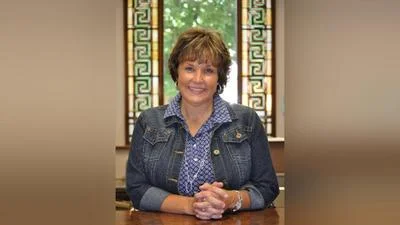University of Illinois System Senate Executive Committee met Sept. 2.
Here is the minutes provided by the committee:
Present: Chair Rob Kar, Mike Bohlmann, Brian Brauer, Adrienne Dixson Shawn Gilmore, Kim Graber, Pia Hunter, Gay Miller, Linda Moorhouse, Chaya Sandler, Helga Varden
Absent: Nicolas Burbules, Vice-Chair John Dallesasse
Guests: Robert Jones (Chancellor), Rummana Alam (Chair of the Senate Committee on University Student Life), Allie Arp (Vice Chair, Council of Academic Professionals), Barry Benson (Vice Chancellor for Institutional Advancement), William Bernhard (Vice Provost for Academic Affairs), Andrew Bowman (Campus Faculty Association Representative), Danita Brown Young (Vice Chancellor for Student Affairs), Martin Burke (Chair, SHIELD: Target, Test, Tell, COVID-19 Committee), Andreas Cangellaris (Vice Provost for Academic Affairs and Provost), Jennifer Carlton (Assistant to the Associate Provost for Faculty Development and Assistant Provost for Administrative Affairs), Holly Clingan (Assistant to the Vice Chancellor for Diversity, Equity, and Inclusion), Lee Gaines (Reporter, Illinois Public Media), Nigel Goldenfeld (SHIELD: Target, Test, Tell, COVID-19 Committee), Chris Harris (Senior Director of Strategic Communications), Jim Hintz (Associate Vice Chancellor for Student Affairs, Student Success, and Engagement), Robin Kaler (Associate Chancellor for Public Affairs), Michael LeRoy (Chair of the Senate Committee on the Budget), Sergei Maslov (SHIELD: Target, Test, Tell, COVID-19 Committee), Kathy Martensen (Assistant Provost for Educational Programs), Susan Martinis (Vice Chancellor for Research and Innovation), Lesley Owens (Member of the Graduate Employees’ Organization), JJ Pionke (Chair of the Senate Committee on Equal Opportunity and Inclusion), Heather Robinson (Reporter, Daily Illini), Ethan Simmons (Reporter, Daily Illini), Rebecca Smith (SHIELD: Target, Test, Tell, COVID-19 Committee), Deborah Stone (Executive Director, HR Administration), Julia Megan Sullivan (Director of Talent Management, Office of the Vice Chancellor for Institutional Advancement), Elizabeth Tsukahara (Assistant Director for Communications, Office of the Vice Chancellor for Diversity), Awais Vaid (Director of Planning and Research, Champaign Urbana Public Health District), Allison Vance (Content Strategic Director, Office of Public Affairs), Kraig Wagenecht (Senior Director, External Research Partnerships, Office of the Vice Chancellor for Research and Innovation), Wanda Ward (Executive Associate Chancellor for Administration and University Relations), Katie Watson (Digital Content Specialist, Office of Public Affairs), Ben Zigterman (Reporter, News-Gazette)
I. CALL TO ORDER
An emergency meeting of the Senate Executive Committee (SEC) was called to order at 5:01 pm with Chair Kar presiding.
II. PUBLIC COMMENT
No requests received.
III. EMERGENCY BUSINESS
Discuss the Increase in Positivity Rate of COVID-19 Tests
Chair Kar originally convened this emergency meeting to discuss concerns about an increase in the positivity rate of COVID-19 tests on campus and what to do in response. In the interim and in response to that same increased positivity rate, Chancellor Jones announced a two-week stay-at-home order. Chair Kar thanked the Chancellor and the SHIELD Team for their quick response but asked to discuss the likely causes of the unexpected uptick and best institutional responses.
Smith stated that test results are somewhat delayed. An increase in positive cases was expected, but not this large of an increase. The models did not include students refusing to follow quarantine/isolation protocols or evading the Champaign Public Health District (CUPHD) contact tracers.
Smith reminded everyone that the University is testing all members of the University community. Peer institutions are only testing symptomatic individuals. Illinois caught the increase in positivity rate much faster than other institutions and if the two-week stay-at-home order from the Chancellor is followed, the positivity rate should decrease.
Maslov noted that the positivity rates are higher over the weekend due to fewer individuals testing and those testing are primarily undergraduates that are higher risk. Cangellaris added that the kind of data we can collect from testing everyone allows for a quicker response to increases in the positivity rate. This data allows us to see where the trends are going and respond accordingly.
Chair Kar stressed the importance of studying in more depth the causes of non compliance, the psychology of compliance, and the best institutional, educational, and communications programs to ensure higher levels of student compliance.
Cangellaris acknowledged that there are some irresponsible individuals on campus. Students will be given the chance to become responsible, but if students continue to willfully disregard regulations and guidelines there will be consequences. Cangellaris mentioned that early evidence suggests that clearer consequences for misbehavior are beginning to help with compliance.
Vaid commended the University for testing everyone and not just symptomatic individuals. This has created an ideal environment for detecting and isolating infected individuals.
Miller asked if students were surveyed or interviewed and the data used in the modeling. Smith replied that the entire campus received a survey, but the individuals answering the survey are not the ones breaking the rules. This survey took a long time to compile and there was not enough time to hold focus groups.
Varden asked about student mindset. Smith said that friends of students breaking the rules are conveying that students are anticipating having to return to all online instruction so why not have fun while students are still on campus. Other students either do not believe it will affect them or the impact would not be significant.
Cangellaris hopes that showing students that there are consequences for bad behavior will deter others from the same bad behavior. These two weeks will be used to educate and communicate what experts are saying – even young people can be infected and suffer from the effects of the virus.
Bohlmann asked about the Safer Illinois app and if there are any known issues with the app. Smith reported that about 60% of positive cases had exposure notifications turned on in the app. In the last week, 372 people received exposure notification. For privacy reasons, we only know if exposure notifications are enabled if someone tests positive.
Goldenfeld said that the Safer Illinois app has had better adoption than other contact tracing apps because it is not just a contact tracing app, but also gives testing results and shows building access status.
Modeling included individuals feeling a false sense of security because the individual has the exposure notifications enabled. Human behavior was factored into the models, but there is no real way to quantify how many people are going to break the rules. Maslov added that there are many parameters around compliance, but compliance cannot be determined ahead of time. Modeling gives ranges and predicts trends
Kar asked how many people are struggling with things like alcohol or addiction and have access to support groups. Smith said that mental health is a big concern. That is one reason for encouraging outdoor solo activity. Alcoholism and drugs are something that should be considered.
Vaid and the CUPHD have been looking at clusters. Of all the cases in Champaign County, 80% are on campus. The others testing positive are symptomatic or high-risk individuals. Most cases are occurring where there are indoor parties that are not being monitored. The cities have put out ordinances that only parties of 10 or less are allowed. Some student housing facilities are seeing upwards of 10% testing positive, but others are not.
The Office of Student Affairs is working to help educate students on behavior expectations. Action in response to irresponsible behavior needs to be swift and taken immediately. Social media is being monitored to see the reaction to the procedures being implemented. Jones added that it is going to take all of us to move this hybrid education forward. We are lucky to have the aggressive testing ability. It only takes a few to ruin it for those that have worked so hard to keep everyone safe.
Varden asked efforts are underway to dispel the false beliefs that students will eventually return to all online instruction so why not have fun while students are still on campus, and others do not believe it will affect them or the impact would not be significant. Goldenfeld responded that there is a communications team and Kaler added that the current messaging encouraging individuals to follow the safety protocols for someone else, for each other. Smith offered to meet with any student groups to share data and reiterate that impact of following and not following safety protocols.
Cangellaris welcomes feedback. The SHIELD Team is about sharing the data and transparency. Target, Test, Tell. Tell does not just apply to letting people know they tested positive, but also telling the community what we are doing. Providing feedback is part of tell. A progress update will be given at an upcoming SEC meeting.
IV. ADJOURNMENT
The meeting was adjourned at 6:09 pm.
https://uofi.app.box.com/v/SenateExecutiveCommittee/file/732538500757





 Alerts Sign-up
Alerts Sign-up